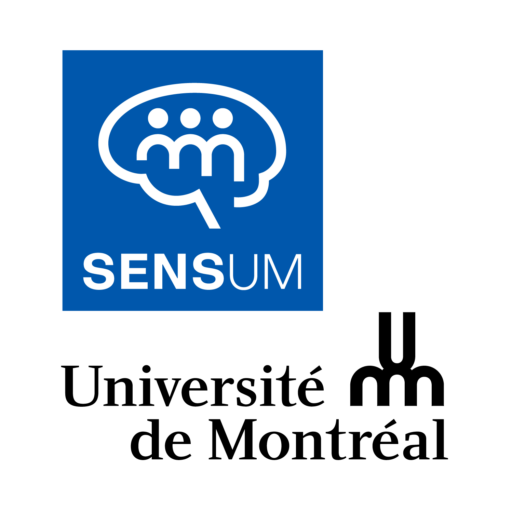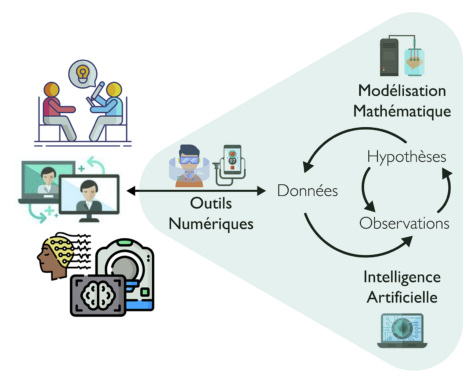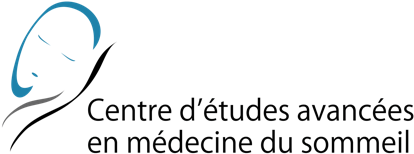Affinity Groups
Affinity groups bring together researchers from various entities affiliated with SENSUM, with the goal of collaborating on unifying research themes. SENSUM supports them in terms of coordination and communication.
Computational and digital approaches in neuroscience and mental health
Computational psychiatry aims to link the clinical manifestations of mental disorders to neurocognitive and socio-affective processes through formal mathematical modeling. Emerging from theories and approaches in psychology and computational neuroscience, it now encompasses three fields: (1) digital psychiatry, which uses computational and connected tools to interact with individuals, notably by collecting data; (2) artificial intelligence-based psychiatry, which analyzes these massive data sets using machine learning methods; and (3) modeling in psychiatry, which develops formal (mathematical) models of brain and cognitive function (and dysfunction) to explain the symptoms observed in the clinic. Together, these three complementary approaches enable the understanding of socio-cognitive and affective processes as well as the mechanisms of mental disorders (mechanistic), and also propose new interventions, notably in clinical decision-making (pragmatic).
Members of this affinity group
- Guillaume Dumas, Research Centre of the CHU Sainte-Justine, Department of Psychiatry and Addictology
- Miriam Beauchamp, Research Centre of the CHU Sainte-Justine, Department of Psychology
- Baudouin Forgeot d’Arc, Research Centre of the CHU Sainte-Justine, Department of Psychiatry and Addictology
- Karim Jerbi, Research Centre of the University of Montreal's Institute in Mental Health, Department of Psychology
- Marc J. Lanovaz, Research Centre of the University of Montreal's Institute in Mental Health, School of Psychoeducation
- Tania Lecomte, Research Centre of the University of Montreal's Institute in Mental Health, Department of Psychology
- Pierre Orban, Research Centre of the University of Montreal's Institute in Mental Health, Department of Psychiatry and Addictology
- Stéphane Potvin, Research Centre of the University of Montreal's Institute in Mental Health, Department of Psychiatry and Addictology
- Irina Rish, Mila - Quebec Artificial Intelligence Institute, Department of Computer Science and Operations Research
- Vincent Taschereau-Dumouchel, Research Centre of the University of Montreal's Institute in Mental Health, Department of Psychiatry and Addictology
Neurostimulation group

The SENSUM research community comprises a significant group of researchers utilizing neuromodulation. Various methods exist to stimulate the nervous system. These stimulations can be used to study neural circuits and the interactions between different brain regions. Alternatively, they can be employed to model neuronal activity in a translational context, leading to the development of clinical treatments such as deep brain stimulation for Parkinson's disease. Many of these methods are non-invasive, involving stimulation through the skin and skull, such as magnetic or electrical stimulation through the skull. Electrodes can also be implanted invasively to interface more precisely with the brain, which is particularly useful in the context of neuroprosthetics.
Members of this affinity group
- Numa Dancause, Centre for Interdisciplinary Research in Rehabilitation of Greater Montreal (CRIR), Department of Neuroscience
- Dorothy Barthélemy, Centre for Interdisciplinary Research in Rehabilitation (CRIR), School of Rehabilitation
- Déborah Feldman, Provincial Research Network in Adaptation-Rehabilitation (REPAR)
- Guillaume Lajoie, Mila, Department of Mathematics and Statistics
- Marina Martinez, Central Nervous System Research Group, Department of Neurosciences
- Jason Neva, Research Centre of the Montreal Geriatric University Institute (CRIUGM), School of Kinesiology and Physical Activity Sciences
- Mathieu Vanni, Interdisciplinary Centre for Research on Brain and Learning (CIRCA), School of Optometry
Translational Addiction Research

Research on the etiology and treatment of addictive disorders is a particular strength at the University of Montreal, particularly within our departments and research centers. We have long been participating in inter-institutional initiatives and consortia that aim to understand the neurobiological (e.g., ENIGMA-Addiction), psychosocial (GRIP and RQSHA), and environmental (CRISM, CCPRT) factors impacting substance abuse and its co-morbidity with other psychiatric disorders. Our researchers lead pan-Canadian and international consortia focusing on multi-site student essays that explore new intervention strategies for addictive behaviors, covering topics from prevention in school settings to new treatments and harm reduction strategies, including therapies using opioids, cannabinoids, and hallucinogens.
These intervention strategies, developed and studied by our researchers, have been recognized in multiple authoritative reports on drug and alcohol abuse prevention (e.g., UNODC, WHO), clinical treatment guidelines, and safe drug and alcohol use guidelines (CRISM). Knowledge transfer is ensured through multiple initiatives under the Expertise Centre and collaboration in concomitant disorders (mental health and dependence) of the RUISSS of the University of Montreal. The CECTC was established to support establishments and their teams in implementing and perpetuating care and integrated services tailored to the specific needs of people with concomitant disorders, utilizing the latest knowledge such as the e-mentoring program ECHO CHUM for concomitant disorders.
Members of this affinity group
- Stéphane Potvin, Research Centre of the Philippe Pinel National Institute of Legal Psychiatry, Department of Psychiatry and Addiction
-
Julie Bruneau, Department of Family Medicine and Emergency Medicine
-
Nathalie Castellanos-Ryan, Department of Psychiatry, School of Psychoeducation, Research Group on Psychosocial Maladjustment in Children (GRIP)
-
Nicolas Chadi, Department of Pediatrics
-
Patricia Conrod, Department of Psychiatry and Addiction
-
Sylvana Côté, Research Group on Psychosocial Maladjustment in Children (GRIP), Department of Social and Preventive Medicine
-
Didier Jutras Aswad, Research Centre of the Montreal Geriatric University Institute (CRIUGM), Department of Psychiatry and Addiction
-
Anne-Noël Samaha, Interdisciplinary Centre for Research on Brain and Learning (CIRCA), Department of Pharmacology and Physiology
Neural signaling and circuits
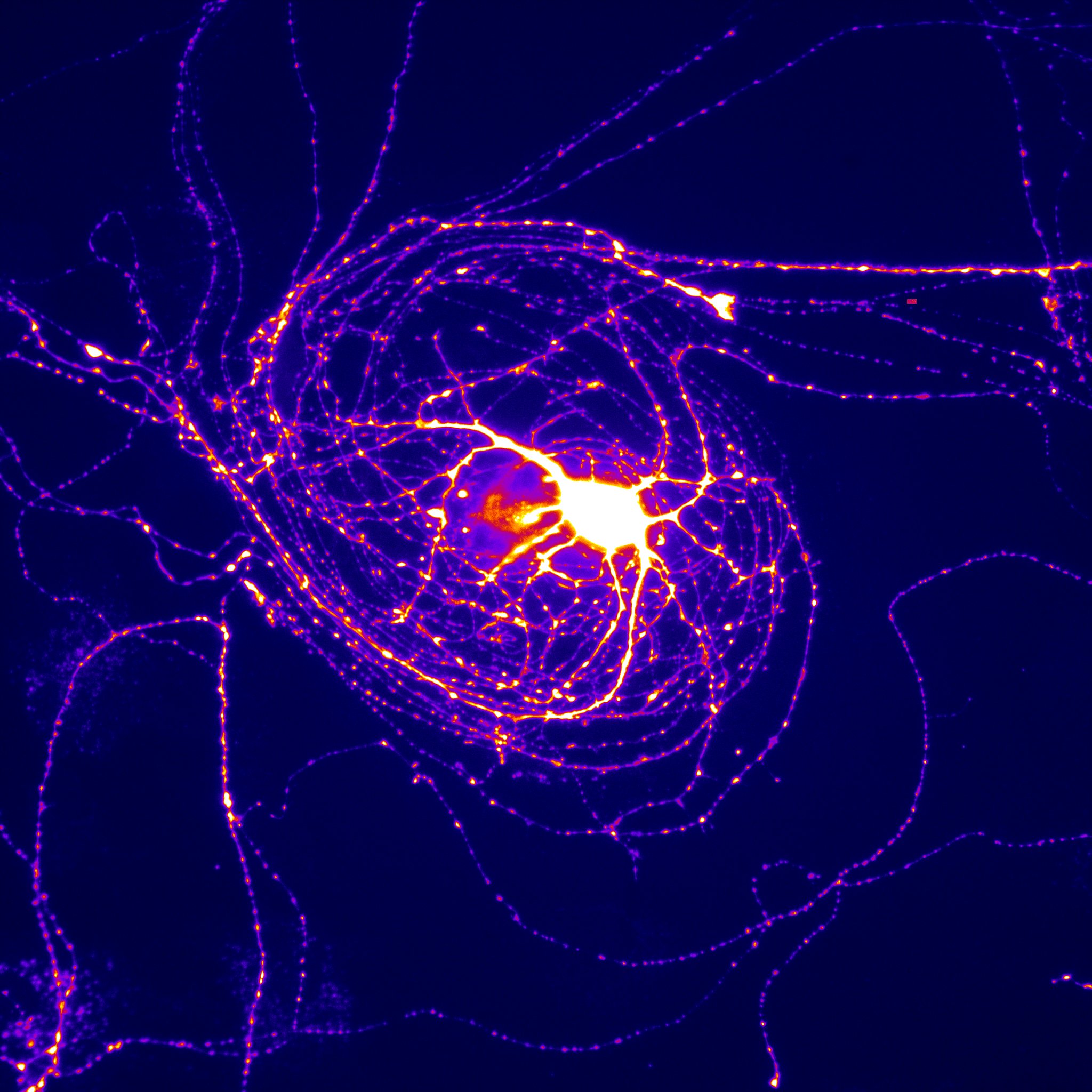
The research group for Neural Signaling and Circuits (SNC) is a multi-departmental and trans-faculty group focused on circuits and the mechanisms of neural and glial signaling in the central and peripheral nervous systems that determine behavior. It includes researchers from the Faculty of Medicine, the Faculty of Dental Medicine, the Faculty of Arts and Science, the School of Optometry, and the Polytechnic School. The main mission of the SNC is to advance research in the field by organizing scientific activities such as conferences, research updates, presentations by students and post-doctoral fellows, sharing technical expertise, and networking events.
SNC group Members
Parkinson’s Disease and Related Syndromes Research Group (GRePSUM)
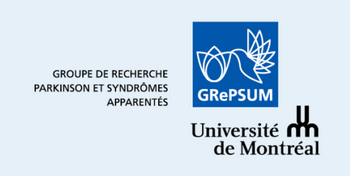
The Université de Montréal and its affiliated research centers have a major interest and a significant critical mass in the field of research on Parkinson's disease and related disorders. The researchers involved in this field have been grouped together under the Parkinson’s Disease and Related Syndromes Research Group (GRePSUM) since 2019. This group is coordinated by Dr. Michel Panisset, a researcher at the CHUM Research Center and neurologist at the André Barbeau Movement Disorders Unit of CHUM, and by Dr. Louis-Eric Trudeau from the Departments of Pharmacology and Physiology and Neuroscience at the Faculty of Medicine, located on the campus of the Université de Montréal.
GRePSUM members:
-
Michel Panisset, Department of Neurology and Neurosurgery, CR-CHUM
-
Louis-Eric Trudeau, Center for Biomedical Innovation (CIB), Department of Pharmacology and Physiology, Department of Neurosciences
-
Pierre Blanchet, Department of Stomatology and Department of Neurosciences, CR-CHUM
-
Michel Desjardins, Center for Biomedical Innovation (CIB), Department of Pathology and Cell Biology
-
Janelle Drouin-Ouellet, Faculty of Pharmacy
-
Antoine Duquette, CR-CHUM
-
Alexandru Hanganu, CR-CHUM
-
Nathalie Labrecque, Department of Microbiology, Infectiology and Immunology, Department of Medicine, Montreal Clinical Research Institute (IRCM)
-
Nicole Leclerc, Department of Neurosciences, CR-CHUM
-
Pascale Legault, Center for Biomedical Innovation (CIB), Department of Biochemistry and Molecular Medicine
-
Daniel Lévesque, Faculty of Pharmacy
-
Diana Mathéoud, Department of Neurosciences, CR-CHUM
-
Oury Monchi, Department of Radiology, Radio-Oncology, and Medicine, Research Center of the Montreal Geriatric University Institute (CRIUGM), CR-CHUM
-
Shady Rahayel, Department of Medicine, CR-CHUM
-
Martine Tétreault, Department of Neurosciences, CR-CHUM
-
Pierre Thibeault, Department of Chemistry, Institute for Research in Immunology and Cancer (IRIC)
Music, Brain, and Health Group
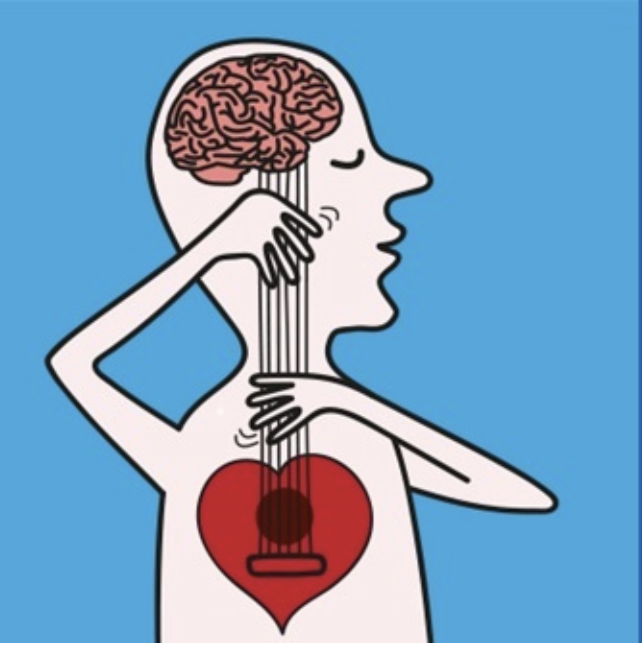
The University of Montreal stands out for developing large research projects and infrastructure to place music at the heart of neuroscience. This solid and abundant science has flourished in Montreal, at our university, thanks to the creation in 2005 of the first international center of excellence on the brain and music (brams.org). Nevertheless, this science has remained confined to the laboratory. The creation of a new axis in applied music neurocognition is an opportunity to leverage our years of experience, the expertise of a well-established academic and professional network, and significant infrastructure to transfer the knowledge gained for individual and societal well-being.
Sleep Group
The mission of this group is to generate new knowledge about sleep as well as to better understand, diagnose, treat, and prevent sleep disorders. They also study the links between sleep disorders and other medical conditions, such as pain, mental health disorders, traumatic brain injuries, respiratory diseases, and neurodegenerative diseases. Members of the Sleep group are particularly involved in the study of blood biomarkers, neuroimaging, and advanced EEG analyses to understand the mechanisms of sleep and its disorders. Their teams evaluate new pharmacological treatments for sleep disorders and non-pharmacological treatment interventions, such as hypnosis for treating sleepwalking, cognitive-behavioral therapy for insomnia, light therapy for circadian rhythm disorders, and dental appliances for treating snoring and sleep apnea syndrome. They work with scientists, clinicians, and the general public to share the evolving knowledge about sleep and its disorders.
Members of this affinity group
- Nadia Gosselin, Département de psychologie
- Marie-Colombe Afota, Département de psychologie
- Bénédicte Amilhon, Département de neurosciences
- Caroline Arbour, Département de sciences infirmières
- Andrée-Ann Baril, Département de médecine
- Nancy Beauregard, Département de psychologie
- Annie Bernier, Département de psychologie
- Elie Bou Assi, CHUM
- Jonathan Brouillette, Département de neurosciences
- Michelle Carr, Département de psychologie
- Julie Carrier, Département de psychologie
- Christian Dagenais, Département de psychologie
- Louis De Beaumont, Département de neurosciences
- Alex Desautels, Département de neurosciences
- Catherine Duclos, Département de psychologie
- Guillaume Dumas, Département de psychiatrie
- André Gaudreault, Département de neurosciences
- Steve Gibbs, Département de psychologie
- Roger Godbout, Département de psychiatrie
- Simon Grenier, Département de psychologie
- Santiago Hidalgo, Département de neurosciences
- Nelly Huynh, Département de psychologie
- Aleksandra Kaminska, Département de littérature comparée
- Marie Laberge, Département de psychologie
- Gilles Lavigne, Faculté de médecine dentaire
- Valérie Mongrain, Département de psychologie
- Jacques-Yves Montplaisir, Département de psychiatrie
- Gregory Moullec, Département de kinésiologie
- Tore Nielsen, Département de psychiatrie
- Shady Rahayel, Département de neurosciences
- Ahmed Jerome Romain, Département de kinésiologie
- Guido Simonelli, Département de psychologie
- Antonio Zadra, Département de psychologie
This content has been updated on 17 July 2024 at 14 h 19 min.
